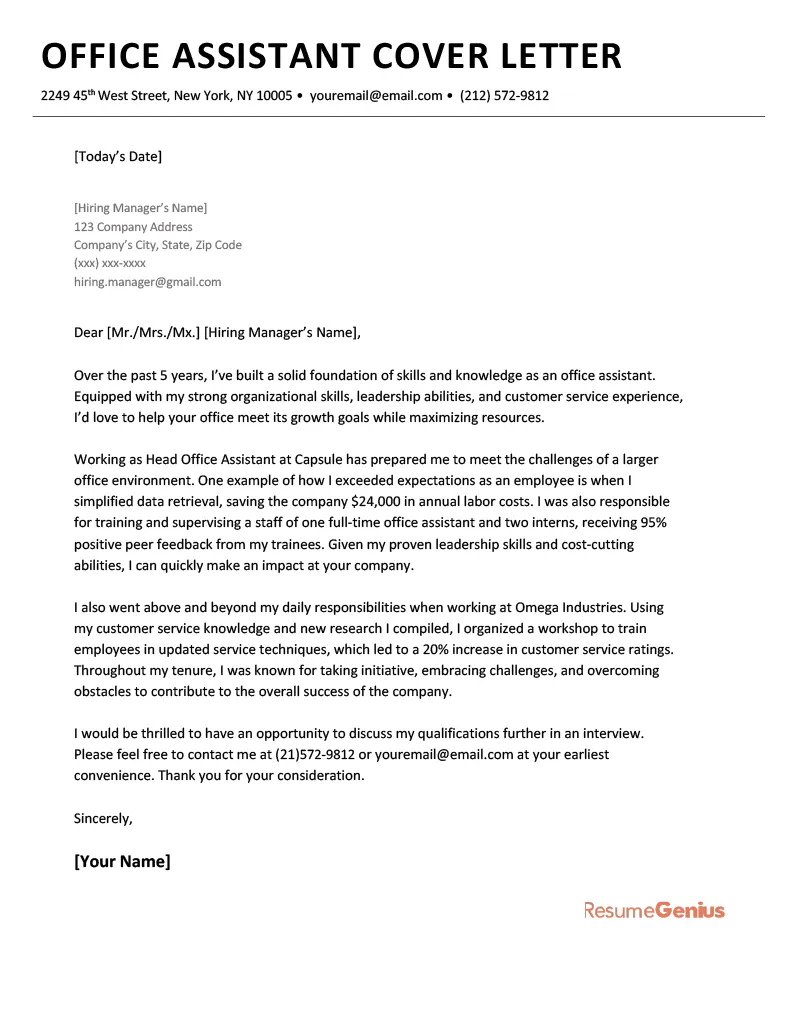What is an Office Assistant?
An Office Assistant is a crucial member of any organization, providing administrative support to ensure smooth daily operations. They wear many hats, handling tasks from managing correspondence and scheduling appointments to organizing files and assisting visitors. The role demands a blend of organizational skills, communication proficiency, and a proactive approach to problem-solving. The specific responsibilities vary based on the size and industry of the company, but the core function remains the same supporting the efficiency and productivity of the workplace. Understanding the scope of the Office Assistant role is essential when crafting a compelling cover letter, ensuring that you highlight the relevant skills and experiences that align with the job’s requirements.
Office Assistant Responsibilities
Office Assistant responsibilities are diverse and critical to the functioning of any office environment. These professionals are tasked with a wide array of duties, including managing phone calls, emails, and mail, scheduling meetings and appointments, and preparing presentations and reports. They often handle tasks such as data entry, maintaining office supplies, and greeting and assisting visitors. Office Assistants may also be responsible for coordinating travel arrangements, managing office equipment, and supporting other staff members with administrative tasks. The key to excelling in this role lies in adaptability and the ability to manage multiple tasks simultaneously while maintaining a high level of organization and attention to detail. Highlighting these responsibilities in a cover letter demonstrates a clear understanding of the role and your ability to meet its demands. (office-assistant-job-responsibilities.webp)
Office Assistant Cover Letter Structure
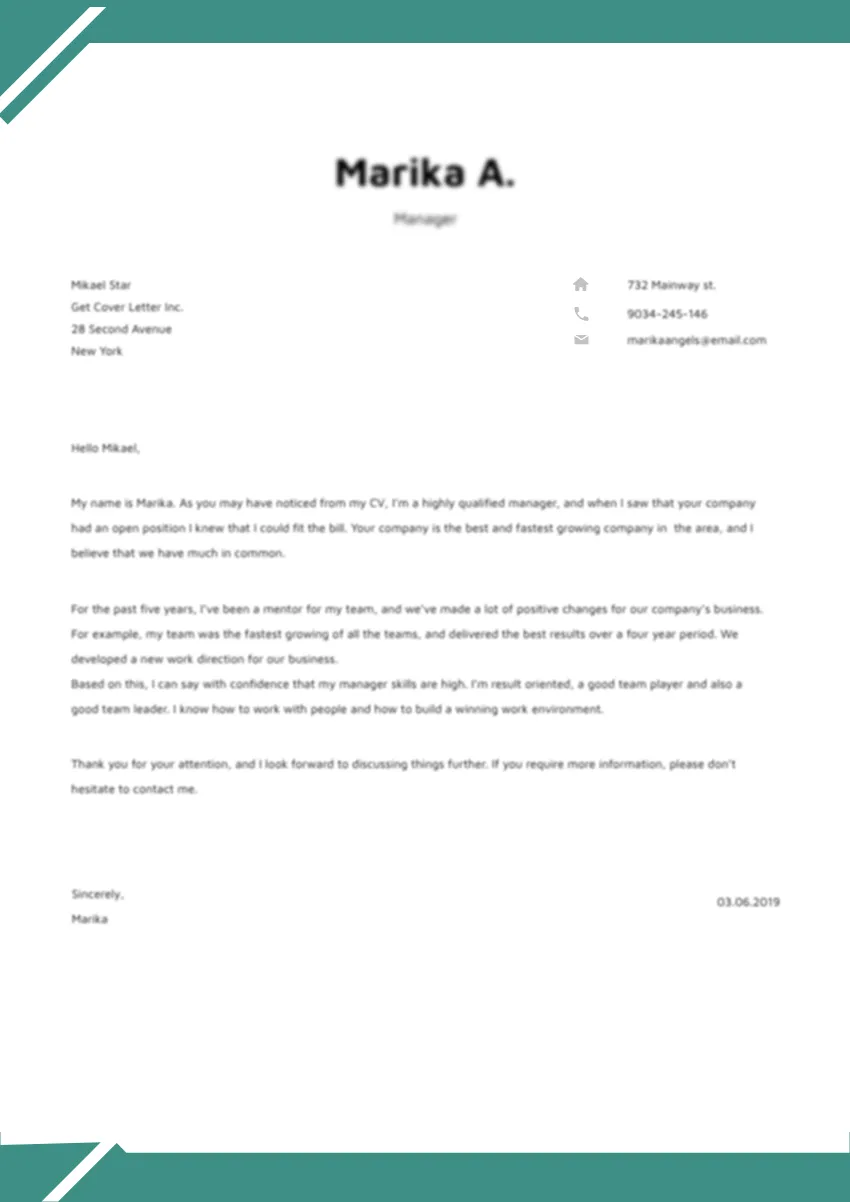
A well-structured cover letter is essential for making a strong first impression. This guide will break down the key components to help you create a compelling cover letter example. The structure should be professional, organized, and tailored to the specific job you are applying for. Use the following format to guide you in creating a standout document. (office-assistant-cover-letter-structure.webp)
Contact Information
Begin with your contact information at the top of the letter. Include your full name, phone number, email address, and optionally, your LinkedIn profile URL. Ensure this information is current and easy to read.
Date
Place the current date below your contact information. This shows the employer when the letter was written.
Hiring Manager’s Name and Title
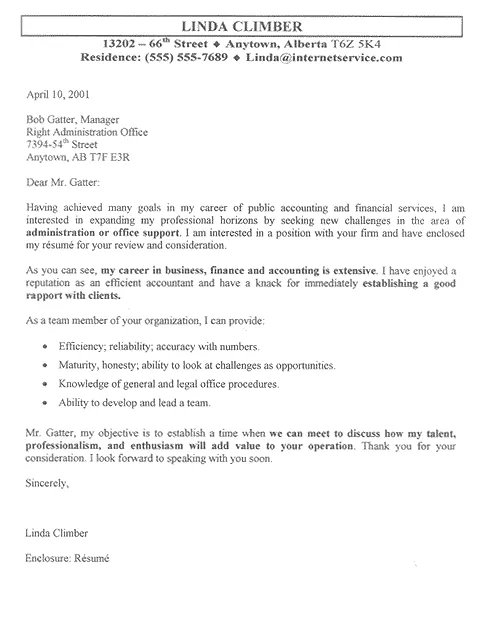
Address the letter to the hiring manager by name if possible. Research the company to find out who the hiring manager is. If you can’t find a name, use a professional title like ‘Hiring Manager’ or ‘Recruiting Team’.
Salutation
Use a professional salutation such as ‘Dear Mr./Ms./Mx. [Last Name]’ or ‘Dear Hiring Manager’.
Opening Paragraph
Clearly state the position you are applying for and where you found the job posting. Briefly express your enthusiasm for the role and the company.
Express Your Interest and State the Position

This is where you explicitly state the position you are applying for and where you saw the job advertisement. For instance, ‘I am writing to express my interest in the Office Assistant position advertised on [Platform].’
Highlight Relevant Skills and Experience
This section is crucial for showcasing how your skills and experience align with the job requirements. Provide specific examples that demonstrate your abilities in areas such as communication, organization, and administrative tasks. Use keywords from the job description to make your application stand out.
Quantify Achievements (if possible)
Whenever possible, quantify your achievements to provide concrete evidence of your capabilities. Instead of saying ‘Managed office correspondence,’ you could say ‘Managed and responded to over 100 emails daily, improving response time by 15%.’ Numbers add credibility.
Showcase Personality and Enthusiasm
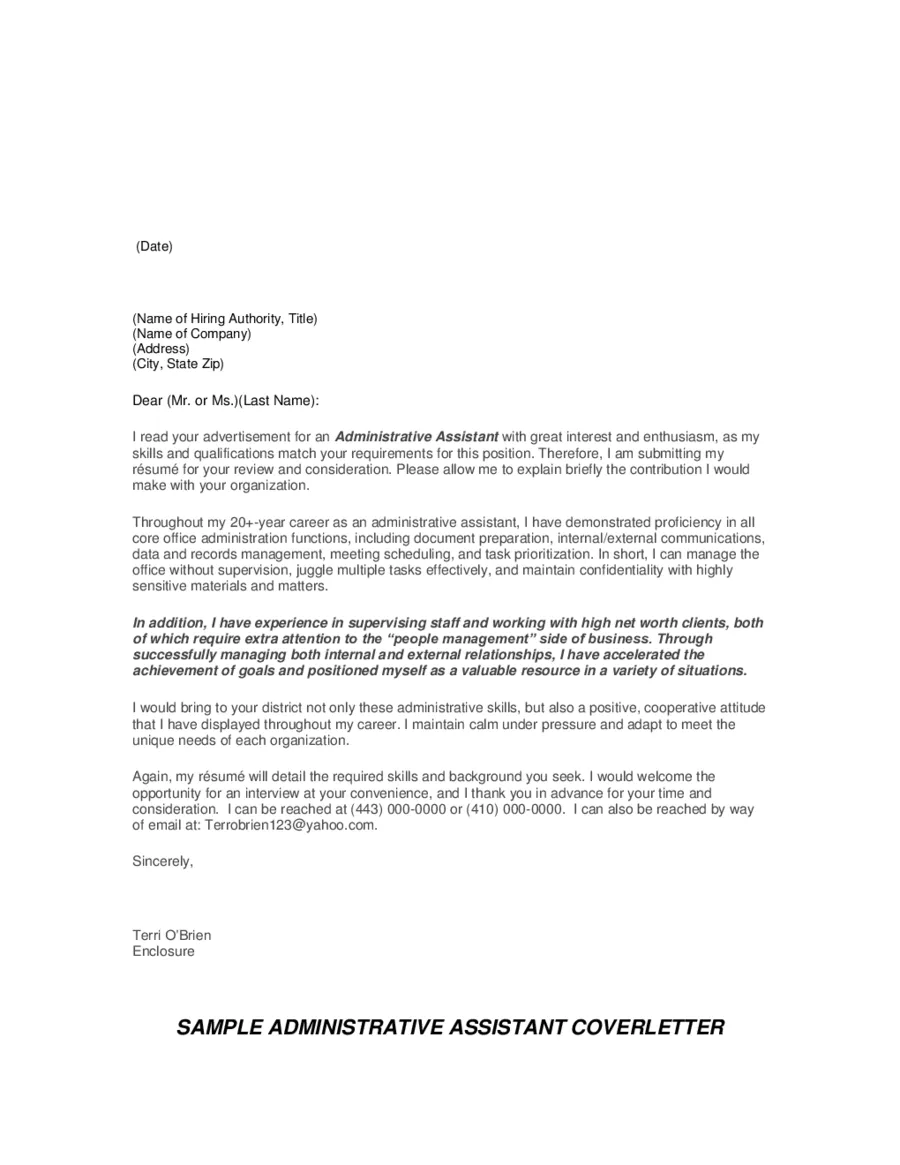
Let your personality shine through! Show your enthusiasm for the role and the company. Share what motivates you and what makes you a good fit for their culture. This adds a personal touch that can set you apart.
Body Paragraphs
The body paragraphs are the core of your cover letter, where you detail your skills, experiences, and achievements. Each paragraph should focus on a specific aspect, such as your organizational skills, communication abilities, or any relevant software proficiency. Structure your paragraphs with clarity and conciseness, using strong action verbs and providing specific examples.
Paragraph 1 Skills & Experience
Start by highlighting your key skills and relevant experience. Mention specific tasks you have performed and how they relate to the job description. For example, if the job requires managing phone calls and emails, you could describe your experience in handling high call volumes and drafting professional emails. This establishes your foundational abilities. (office-assistant-skills-experience.webp)
Paragraph 2 Specific Achievements
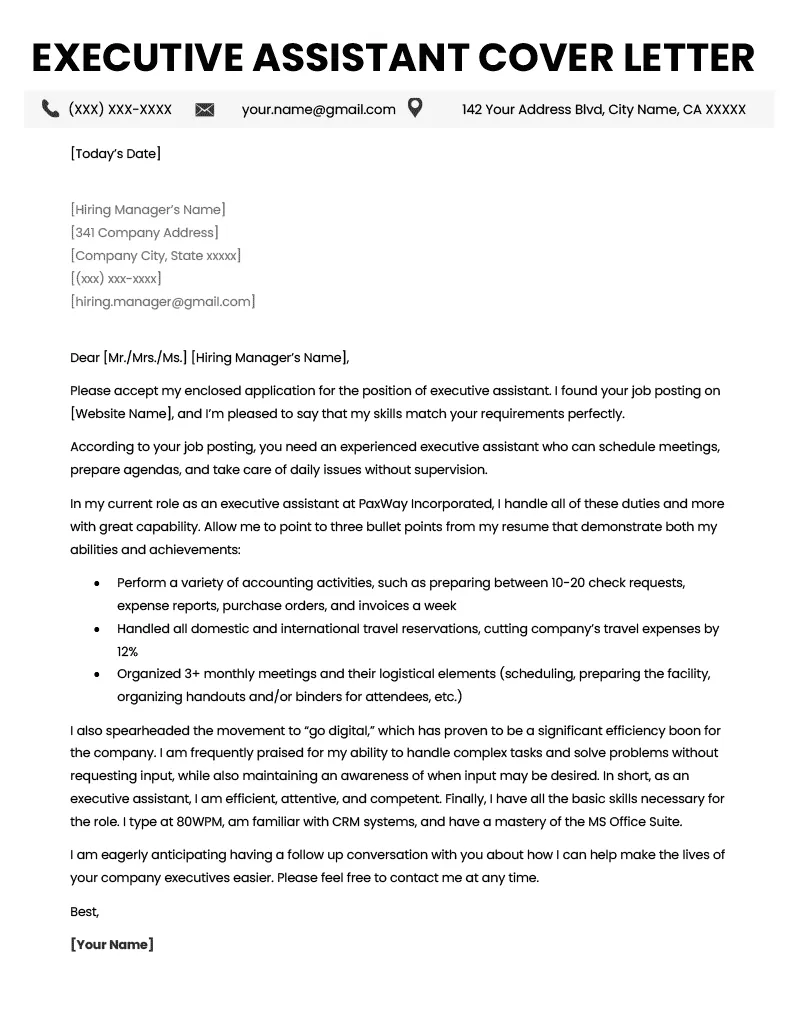
Use this paragraph to showcase your achievements. Provide specific examples of how you have excelled in previous roles. For instance, if you improved office efficiency, detail the steps you took and the results you achieved. Numbers and metrics add weight to your claims.
Paragraph 3 Company Alignment
Demonstrate your understanding of the company’s mission and values. Explain why you are interested in working for this specific company and how your skills and experience align with their goals. This shows that you have done your research and are genuinely interested in the opportunity.
Closing Paragraph
Summarize your interest in the position and thank the reader for their time and consideration. Reiterate your enthusiasm and express your eagerness for an interview.
Reiterate Interest and Thank the Reader

Restate your interest in the position and express your gratitude for the reader’s time and consideration. A brief, enthusiastic statement is effective.
Call to Action
Include a call to action. State that you are available for an interview and look forward to discussing your qualifications further. This encourages the reader to take the next step.
Formal Closing
Use a professional closing such as ‘Sincerely,’ ‘Best regards,’ or ‘Thank you’.
Signature
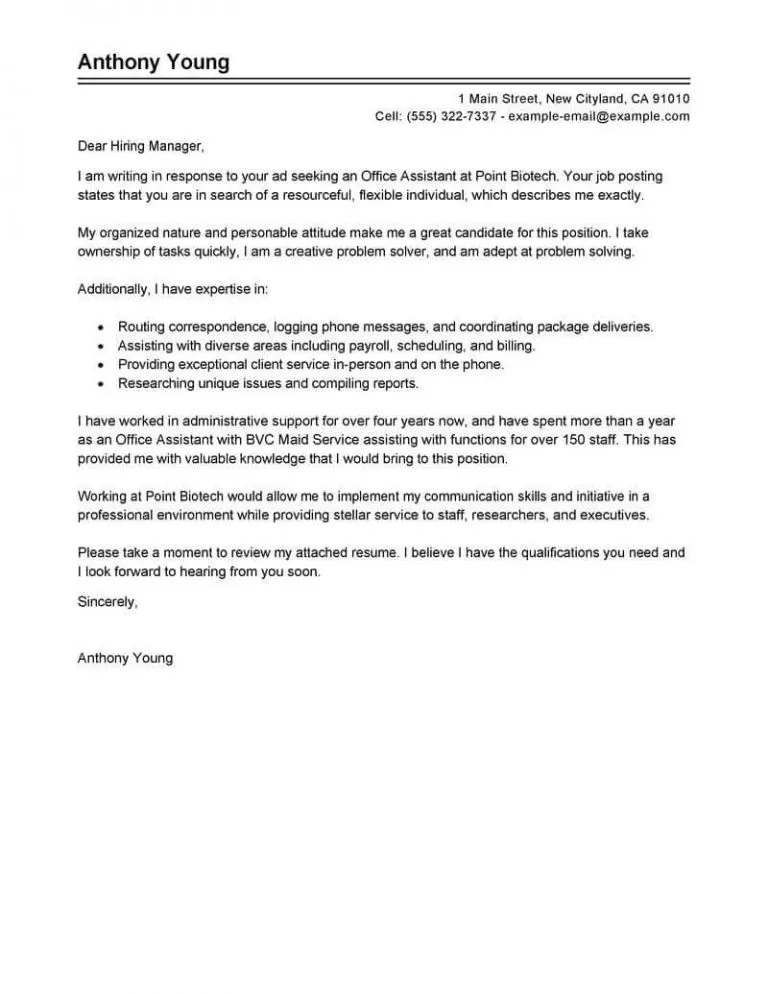
If submitting a digital cover letter, type your name. If printing the letter, leave space for your handwritten signature above your typed name.
Common Mistakes to Avoid
Avoiding common pitfalls can significantly improve your cover letter. Ensure your cover letter is free from errors and tailored to the specific job. Here are some common mistakes and how to avoid them. (office-assistant-cover-letter-mistakes.webp)
Generic Content
Avoid using a generic cover letter that is not tailored to the specific job and company. Customize your letter to match the job requirements and highlight relevant skills and experiences. Generic letters often fail to capture the hiring manager’s attention and can lead to your application being overlooked.
Typos and Grammatical Errors
Carefully proofread your cover letter for any typos or grammatical errors. Errors can undermine your professionalism and make a negative impression. Always read your letter multiple times and use a spell-checker to ensure accuracy. Consider asking a friend or family member to review it as well.
Too Long or Too Short
Aim for a cover letter that is concise and easy to read. A cover letter that is too long can lose the reader’s interest, while a letter that is too short may not provide enough information. Generally, your cover letter should be no more than one page. Focus on the most relevant information and use clear, direct language.
Failing to Tailor to the Job
Customize your cover letter for each job application. Review the job description and highlight the skills and experiences that match the requirements. Generic letters are less likely to impress hiring managers. Demonstrating that you understand the company’s needs and can meet them significantly increases your chances of getting an interview.
Cover Letter Examples
Reviewing cover letter examples can provide valuable insights and help you create your own compelling document. Customize these examples to fit your skills and experience. (office-assistant-cover-letter-writing.webp)
Example 1 Entry Level Office Assistant
This example is tailored for individuals with limited professional experience. It emphasizes transferable skills, such as communication, organization, and computer proficiency. Highlight any relevant coursework, volunteer work, or internships. Show enthusiasm and a willingness to learn and adapt. This is a good starting point for those just entering the workforce. (office-assistant-entry-level-example.webp)
Example 2 Experienced Office Assistant
This example is suited for experienced office assistants. Emphasize previous work experience, including specific accomplishments and quantifiable results. Mention relevant software proficiencies and skills in managing office operations. Demonstrate leadership and the ability to handle increased responsibilities. This example shows how your skills can contribute to an office’s efficiency.
Tips for Customizing Your Cover Letter
Customizing your cover letter is essential for making a strong impression and increasing your chances of landing an interview. Tailoring your letter to each job application shows that you have put in the effort to understand the role and the company. Here are some tips for customizing your cover letter to make it stand out. (office-assistant-company-research.webp)
Research the Company
Before you start writing, research the company. Understand their mission, values, and culture. This knowledge will help you tailor your cover letter to align with their needs. Visit their website, read about their recent projects, and check out their social media profiles. Demonstrating that you understand the company’s goals and values shows your genuine interest and commitment.
Use Keywords from the Job Description
Carefully review the job description and identify the keywords used to describe the desired skills and experience. Incorporate these keywords into your cover letter, ensuring that your skills and experience match the job requirements. This helps your application get noticed by applicant tracking systems and hiring managers.
Proofread Carefully
Proofreading is crucial to ensure your cover letter is free of errors. Errors can undermine your credibility and make a negative impression on the hiring manager. Always proofread your letter multiple times, paying close attention to grammar, spelling, and punctuation. Consider asking someone else to review your letter for a fresh perspective.
Follow Up
After submitting your cover letter and resume, follow up with the hiring manager or recruiter. Send a polite email or make a phone call to express your continued interest and ask about the status of your application. This shows initiative and demonstrates your enthusiasm for the opportunity.
